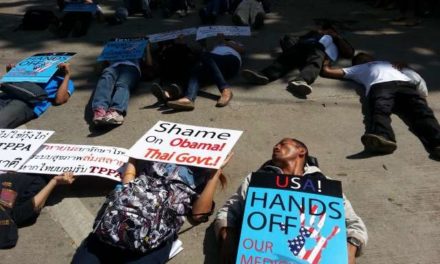February 10, 2025. MANILA : The second round of negotiations for a comprehensive and ambitious free trade agreement between the European Union and the Philippines will commence today in Manila amidst an unfolding trade war among the major trade powers triggered by Trump’s tariffs.
The references to economic partnerships notwithstanding , these trade deals in reality are heavily tilted in favor of the big economies.
“Despite all the lofty rhetoric we will hear, the EU’s offensive agenda is carefully crafted to serve its own economic interests—not those of the Filipino people, especially workers,” stressed Josua Mata, Secretary General of the progressive labor center SENTRO.
These negotiations started as early as 2015, under what the EU referred to as partnerships for the 21st century. But the talks were suspended in 2017 as relations soured under the Duterte administration over growing concerns on human rights. Talks were restarted early 2024 as the new Marcos administration pushed to quickly normalize economic relations with the EU.
“A lot has changed since the suspension of the talks almost 7 years ago. Geopolitics have become an even bigger motivating factor in these talks” said Joseph Purigganan, Co-Director of the policy research group Focus on the Global South.
“A major driving force of these talks is the desire of the EU to secure access and control over critical minerals to serve its strategic interests on energy and manufacturing. And this agenda would most likely push the Philippines to pursue further extractions of critical minerals, to the detriment of our environment and the rights of indigenous communities,” added Purugganan.
“On the side of the EU, they know what they want and they will use the FTA as a tool to advance their intrerests,” said labor lawyer Atty. Tony Salvador. “This is evident in the textual proposals already tabled by the EU both on more traditional FTA issues on market access, investment facilitation, prohibition of performance requirements, and intellectual property as well as the new areas like digital trade, and energy and raw materials,” added Salvador.
For Josua Mata: “The key question is whether the Philippine government has a clear negotiating agenda in order to promote and protect our own interests or will it simply accede to what the EU wants?
“Experience has shown that the EU backs down when faced with a negotiating partner that stands firm in defending its people’s interests. But does our government have the spine to stand up for its own people? And more importantly, who are they really negotiating for when we don’t even have a clear industrial policy to protect and develop our own economy,” added Mata.
Human rights, the issue that sidelined the negotiations back in 2017, continues to be a thorny issue.
The leadership of both the EU and Philippine government seem bent on setting aside human rights in favor of advancing corporate interests.
“It is important to point out the hypocrisy of the EU, said Ana Maria Nemenzo of WomanHealth, when it comes to its championing of human rights. It’s own Generalized System of Preferences or GSP+ was a complete failure in as far as putting pressure on Duterte to stop the killings under its violent drug war.”
The EU is clearly aware of the potential negative impact of this agreement on human rights. The Trade and Sustainability Impact assessment that it commissioned pointed out in the report published in 2019, that “ a future FTA would be likely to have impacts on (Filipinos) occupied in and around the sectors that see rapid expansion and especially the sectors where concerns already exist on human rights issues”
The report cited the example of the expansion of the textile and wearing apparel sector as well as of the electronics sector, and the possibility of heightened “ risks of an increased use of child labour as well as have impacts on women’s rights.”
The report also raised a red flag that “the expansion of the manufacturing sector could see increased land conversion for industrial manufacturing zones, potentially leading to indigenous peoples’ or minorities’ decreased access to customary lands as well as an increase in land disputes.“
As the second round goes underway, Trade Justice Pilipinas raises these concerns so the public may know of the potential negative impact of yet another ambitious and comprehensive trade deal negotiated at the behest of corporate interest yet with tremendous consequences for people’s rights and welfare. #
Contact person:
Joseph Purugganan
+639175460319










